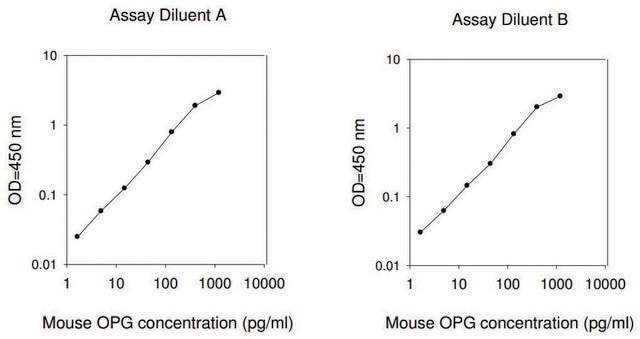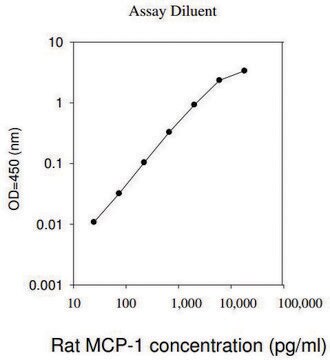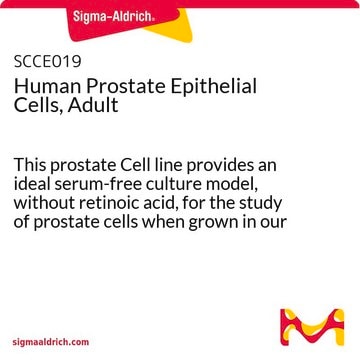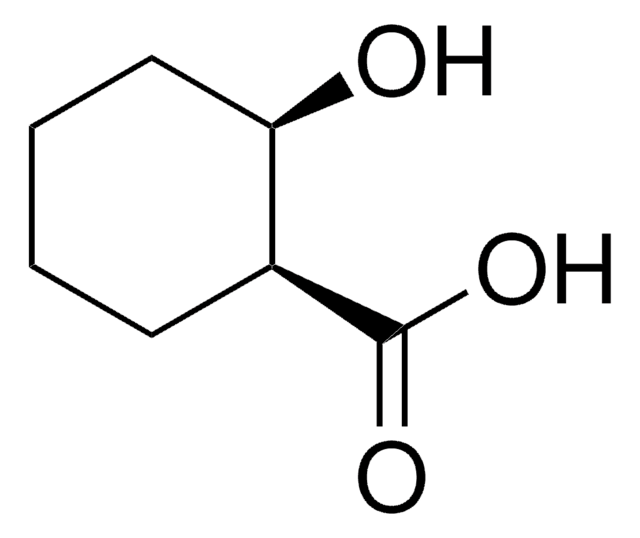RAB0484
Human Osteoprotegerin / TNFRSF11b ELISA Kit
for serum, plasma, cell culture supernatant and urine
Synonym(s):
OPG
Sign Into View Organizational & Contract Pricing
All Photos(2)
About This Item
UNSPSC Code:
41116158
NACRES:
NA.32
Recommended Products
species reactivity
human
packaging
kit of 96 wells (12 strips x 8 wells)
technique(s)
ELISA: suitable
capture ELISA: suitable
input
sample type serum
sample type urine
sample type cell culture supernatant(s)
sample type plasma
assay range
inter-assay cv: <12%
intra-assay cv: <10%
sensitivity: 1 pg/mL
standard curve range: 1.23-900 pg/mL
detection method
colorimetric
shipped in
wet ice
storage temp.
−20°C
Gene Information
human ... TNFRSF11B(4982)
General description
The Human Osteoprotegerin ELISA (Enzyme-Linked Immunosorbent Assay) kit is an in vitro enzyme-linked immunosorbent assay for the quantitative measurement of human Osteoprotegerin in serum, plasma, cell culture supernatants and urine.
Osteoprotegerin (OPG) is encoded by the gene mapped to human chromosome 8q24. It is a member of the TNFR (tumor necrosis factor receptor) superfamily that can act as a decoy receptor for RANKL (receptor activator of nuclear factor kappa-B ligand) and TRAIL (tumor necrosis factor-related apoptosis-inducing ligand). OPG is expressed in a wide variety of tissues, including adult heart, lung, kidney and liver. It is secreted both as a monomeric and a dimeric protein.
Osteoprotegerin (OPG) is encoded by the gene mapped to human chromosome 8q24. It is a member of the TNFR (tumor necrosis factor receptor) superfamily that can act as a decoy receptor for RANKL (receptor activator of nuclear factor kappa-B ligand) and TRAIL (tumor necrosis factor-related apoptosis-inducing ligand). OPG is expressed in a wide variety of tissues, including adult heart, lung, kidney and liver. It is secreted both as a monomeric and a dimeric protein.
Immunogen
Recombinant Human OPG
Application
For research use only. Not for use in diagnostic procedures.
Please refer to the attached General ELISA KIT Procedure (sandwich, competitive & Indirect ELISA)
Please refer to the attached General ELISA KIT Procedure (sandwich, competitive & Indirect ELISA)
Biochem/physiol Actions
Binding of soluble osteoprotegerin (OPG) to sRANKL (soluble receptor activator of nuclear factor κ-B ligand) inhibits osteoclastogenesis by interrupting the signaling between stromal cells and osteoclastic progenitor cells. This process leads to excess accumulation of bone and cartilage. Changes in the level of serum OPG are associated with atherosclerosis and cardiovascular disorders(CVDs). It might also be associated with malignancy and plays a regulatory role in multiple myeloma, prostate, breast, bladder and gastric carcinoma. OPG plays a vital role in bone metabolism and is involved in inhibition of ovariectomy-associated bone loss in rats. It is also used as a potent biomarker for CVD.
Other Notes
A sample Certificate of Analysis is available for this product.
Please type the word sample in the text box provided for lot number.
Please type the word sample in the text box provided for lot number.
Kit Components Also Available Separately
Product No.
Description
SDS
Signal Word
Warning
Hazard Statements
Precautionary Statements
Hazard Classifications
Met. Corr. 1
Storage Class Code
8A - Combustible corrosive hazardous materials
Choose from one of the most recent versions:
Already Own This Product?
Find documentation for the products that you have recently purchased in the Document Library.
Allison P Garcia et al.
Journal of clinical pharmacology, 60(2), 209-217 (2019-09-20)
This pilot study examined how exemestane (an aromatase inhibitor [AI]) affected osteoprotegerin (OPG) urine concentrations in postmenopausal women. Exemestane (25 mg, single dose) was given to 14 disease-free women past menopause in this nonrandomized, open-label study. Before dosing, urine specimens
Roles and clinical applications of OPG and TRAIL as biomarkers in cardiovascular disease.
Bernardi S, et al.
BioMed Research International, 2016, 12-12 (2016)
Osteoprotegerin secreted by inflammatory and invasive breast cancer cells induces aneuploidy, cell proliferation and angiogenesis.
Goswami S and Neelam S-W
BMC Cancer, 15(1), 935-935 (2015)
Functions of RANKL/RANK/OPG in bone modeling and remodeling.
Boyce BF and Xing L.
Archives of Biochemistry and Biophysics, 473(2), 139-146 (2008)
Polymorphisms in three genes are associated with hemorrhagic stroke.
Liu W
Brain and Behavior, 5(11), e00395-e00395 (2015)
Our team of scientists has experience in all areas of research including Life Science, Material Science, Chemical Synthesis, Chromatography, Analytical and many others.
Contact Technical Service